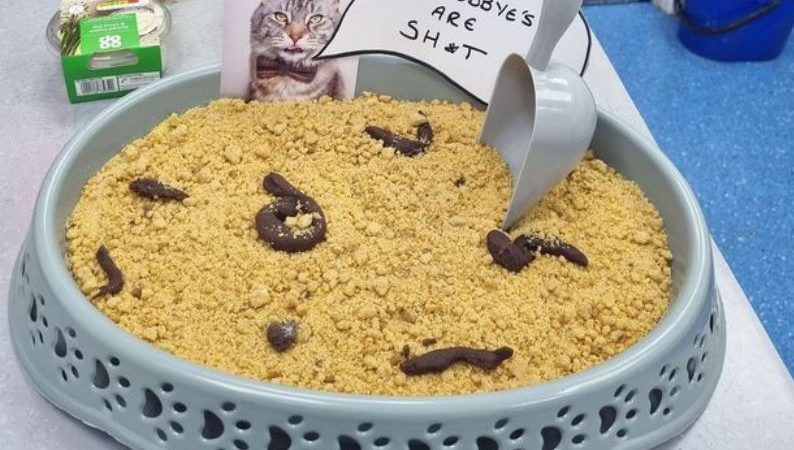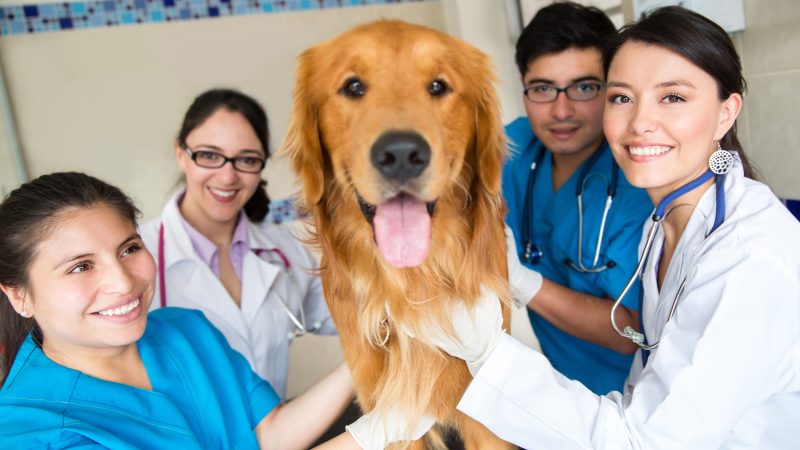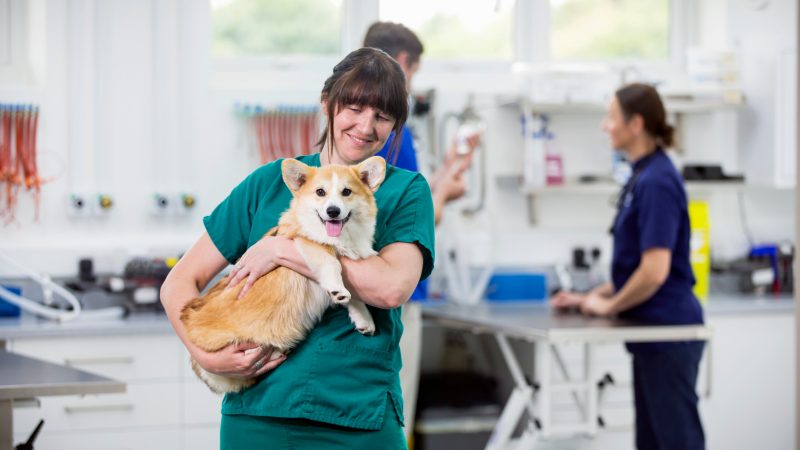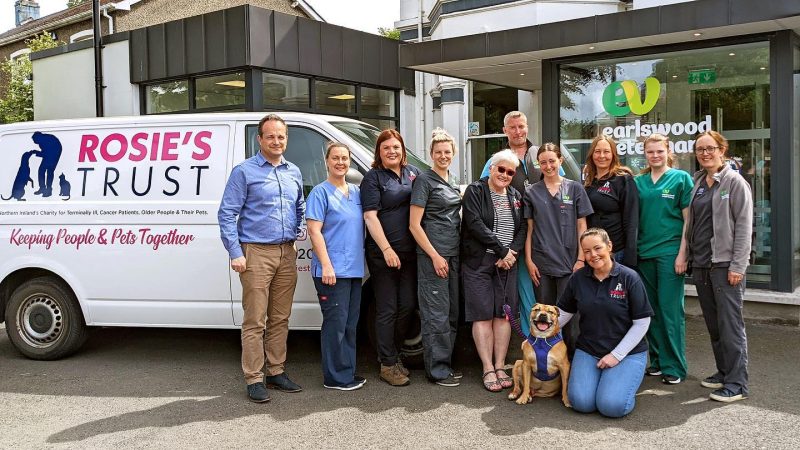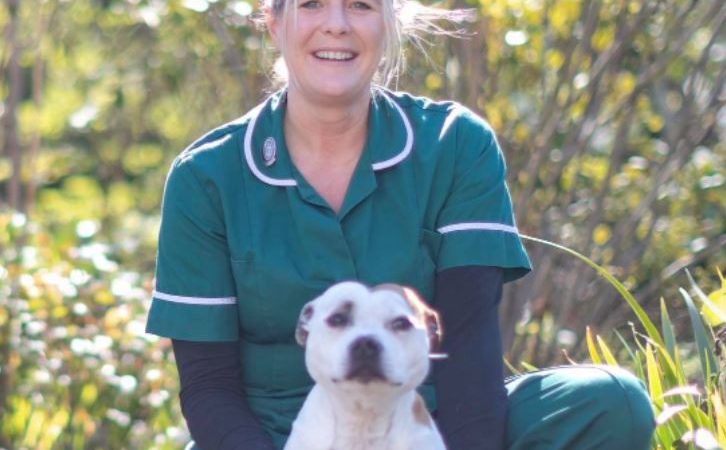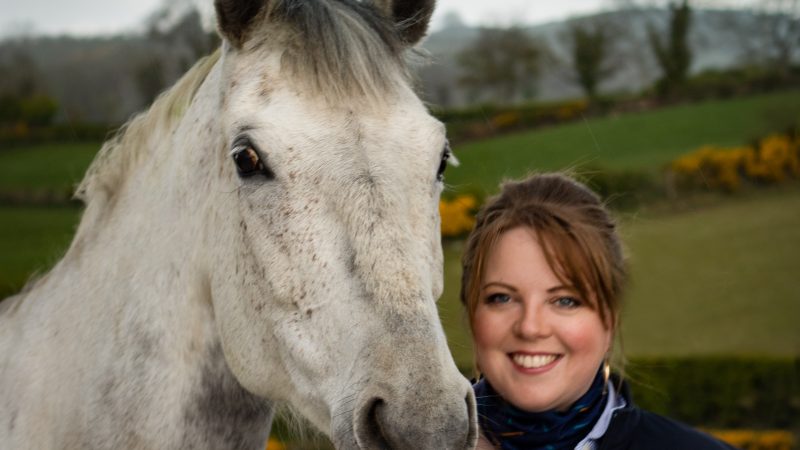Have van, will travel…
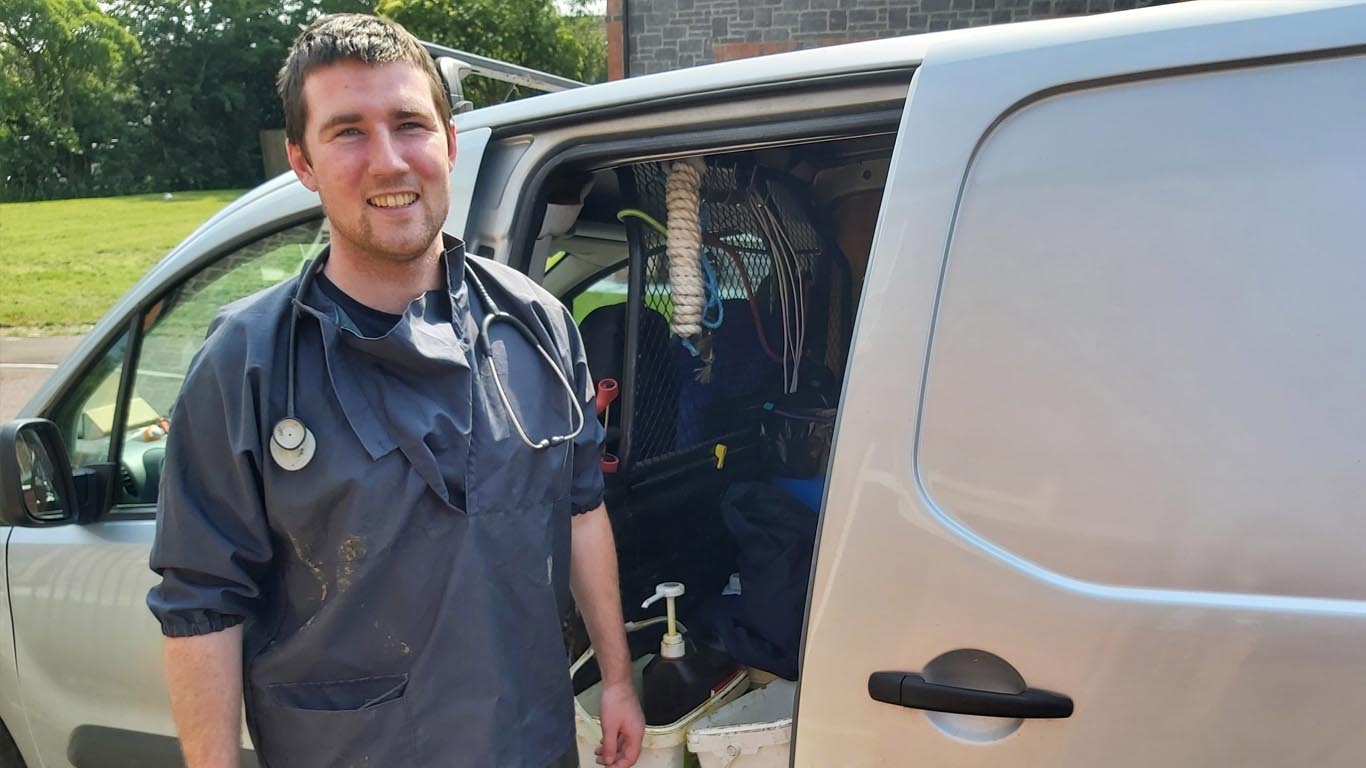
Patrick Finnegan and Stephen Hazelton are behind Farm Vet Services, an agile new large animal practice in the west and north-east of the country with a focus on modern, preventative care techniques…
A mobile, highly adaptable large animal veterinary service with a proactive, preventative approach to health care and appealing, in particular, to young, forward-looking vets.
That’s the long-term aspiration of business partners, Patrick Finnegan (27) from Clogher in County Tyrone and Stephen Hazelton (28), who comes from the village of Brookeborough in Fermanagh.
Both men are passionate when it comes to a progressive approach to large animal care and their new business venture, Farm Vet Services, sees them bring that modern methodology to bear for a burgeoning client base across a wide swathe of Counties Tyrone and Fermanagh and in south Antrim.
Patrick and Stephen have been friends since their days at the University of Glasgow and although working in a self-employed capacity was something that they’d talked about throughout that time, both men worked for a period in the local veterinary sector before striking out on their own.
Graduating in 2017, Patrick went to work for O’Reilly and Fee Veterinary Surgery in Armagh. Stephen, who had graduated during the previous year, worked for a time in England before relocating back to NI and working as a locum in the Fermanagh area.
The men stayed in touch and eventually, they began to talk about the possibility of working as vets in New Zealand:
‘It was something we’d discussed before and I’d always wanted to do it,’ Patrick told NI Veterinary Today recently. ‘I’d heard a lot from vets who’d already done it and New Zealand just appealed to me from a farm animal perspective. There’s a lot of dairy work there and a good work/life balance is something that’s talked about a lot.’
In August 2018, the pair acted on their convictions and travelled to New Zealand where they spent three months working as dairy vets during the country’s busy spring season. It was an experience that would do much to inform their subsequent plans for a progressive large animal practice of their own.
‘The experience allowed us to develop our clinical skills and gave us a few more specific ideas which we have been able to incorporate into the new business,’ said Patrick. ‘While individual animals still needed to be diagnosed and treated there was much less emergency work and a far greater emphasis placed upon herd health measures by both farmers and vets. The farmers were very proactive in this respect with their focus being on the efficiency of their herd/flock relating to profit per hectare rather than profit per animal.’
Patrick recalls the willingness of farmers in NZ to implement new methods of caring for animals once the cost-benefits and welfare implications had been explained to them:
‘Disbudding of calves for example, or teat-sealing. If you could show a farmer evidence that there was a cost benefit or that it improved the health and welfare of the animal, then it was easy to convince him to adopt that way of doing things.’
Plans
When they left New Zealand, Patrick returned to his position at O’Reilly and Fee and Stephen settled into a new position with Three Valleys Veterinary in Fivemiletown.
Although both men were content in their jobs, the idea of working for themselves as a team was still very much on their minds:
‘Working for ourselves or having a say in another practice was something we’d always had in our heads,’ said Patrick.
The pair undertook some business CPD to help them get their heads around the financial implications and understand just what was involved. Then they quit their former jobs in October last year and Farm Vet Services was born.
Focus
Patrick and Stephen’s new practice is solely focused on large animal care:
‘There was probably a time when we thought we might have to take on a certain amount of small animal and equine, it was sort of the done thing, but the business CPD that we’d done had made us realise that our strengths lay in large animal and that it would be better to focus on that do it well, rather than spread ourselves too thin,’ remarks Patrick.
True to its name, Farm Vet Services works with clients at their farms and places of businesses, caring for animals entirely on-site. And the large number of dairy and beef cattle and sheep in the predominantly rural areas that they cover means they are kept busy:
The pair describe themselves as ‘happy’ with the level of business they have experienced so far. The Covid-19 crisis did have an impact, they say, but they point out that emergency calls from farmers still had to be attended to:
‘We took all the precautions, we wore PPE and so on, but the farmer is still going to call us if a cow is due to calve, Covid-19 or not, and we have to go,’ added Patrick. ‘The real impact that we felt was in relation to the loss of TB testing from the locum end of the practice. The locum is the first person to go in these situations, but it did give us more time to work at our business and ensure we were in the best position to move forward.’
The uniquely agile nature of the Farm Vet Services model offers Patrick and Stephen enhanced opportunities for growth. They recently took on the large animal element of business at Coach Veterinary Clinic in Templepatrick, widening further the geographic area covered by their practice.
As for the future, the pair do envisage opening a couple of administrative offices – one in Clogher and the other in Templepatrick – but with the upheaval brought about by the pandemic, it’s hard at this stage to say when those premises might be fully operational.
‘As it stands, there will be no clinical work at those sites but perhaps, in years to come, we might go down that road, we might install a crush for example, but not at the moment,’ said Stephen. ‘But we do envisage ourselves growing the number of vets we have going forward and our customer base. We would like to reach the stage where the majority of our work will be based around herd health and preventative medicine.
‘We are also trying to develop the business so that it is attractive to other young vets to come to, we don’t want to be all about emergency work or TB testing, we want a nice balance so that younger vets will find the prospect of working with us appealing.’
Stephen is also currently engaged in studying for a Masters in ruminant nutrition and both men see this as another potential area for specialist development in the future.
‘We are determined to build an attractive and forward-looking practice,’ added Patrick. ‘We want it to be the case that if there are young, talented vets out there who perhaps, are a little jaded with their current positions, that they could look at Farm Vet Services and think that this is somewhere that they could flourish. That’s exactly the sort of business we want to build.’


